An in-depth look at how contracting models have changed and its impact on our industry

We explore the evolution of contracting models in our industry, highlight key trends, challenges, and access their impact on service delivery, efficiency, and client satisfaction.
The facilities services industry has always played a crucial role in ensuring the effective cleanliness and operational efficiency of commercial and institutional spaces. Over the years, the industry has experienced significant changes in its contracting models, driven by various factors such as technological advancements, changing client expectations, and a growing emphasis on efficiency and cost effectiveness. In this article, we will explore the evolution of contracting models in the facilities services/commercial cleaning industry, highlighting key trends, challenges, and their impact on the facility management function, service delivery, efficiency, and client satisfaction.
Traditional In-House and Single-Service Contracts
In the early stages of its evolution, facilities management companies and/or client Property/FM teams, primarily relied on in-house teams or single-service contracts to handle various aspects of facility maintenance, cleaning and operations. Under this model, organisations directly employed staff members who were responsible for specific functions like maintenance, security, cleaning, and landscaping. While this approach provided direct control over operations, it had limitations, including higher costs, limited expertise, and increased administrative burdens.
The Rise of Bundled Contracts
To address the limitations of traditional contracting models, bundled contracts emerged as a popular alternative. Bundled contracts involve outsourcing multiple services to a single facilities services provider. Organisations consolidate various functions, such as maintenance, janitorial services, security, and landscaping, etc. under one contract. This consolidation allows clients to benefit from economies of scale, reduced administrative overheads, and improved service coordination.
Bundled contracts enable organisations to tap into specialised expertise and leverage the service provider’s economies of scale. By consolidating services under one contract, clients can achieve cost savings, enhanced service quality, and greater operational efficiency. In addition, bundled contracts foster better communication and coordination among service providers, leading to a more seamless and integrated approach to facility services.
Integrated Facilities Management (IFM)
As the industry continued to evolve, Integrated Facilities Management (IFM) gained prominence. IFM contracts take the concept of bundled contracts a step further by outsourcing a wide range of services, including both hard services (e.g., building maintenance, engineering) and soft services (e.g., cleaning, catering), to a single provider. IFM contracts aim to provide a comprehensive and integrated approach to facilities management, streamlining processes and enhancing efficiency.
By transferring risk and accountability to the service provider, IFM contracts allow clients to focus on their core business activities while relying on the expertise of the IFM provider to manage all aspects of facility operations. This model enables better cost control, consistent service quality, and improved performance measurement. IFM contracts also foster collaboration and integration among service providers, leading to a holistic approach to facility services and improved cost savings and service delivery.
Performance Based Contracts
In recent years, performance-based contracts have gained traction, driven by the need for greater accountability and measurable outcomes. These contracts shift the focus from activities to results, with commercial cleaning service providers being rewarded based on meeting or exceeding predefined service level agreements (SLAs) and key performance indicators (KPIs). This approach encourages providers to deliver high-quality services while aligning their goals with those of the client organisation.
Performance-based contracts promote innovation and continuous improvement by incentivising service providers to identify efficiencies and implement best practices. Additionally, they foster a collaborative relationship between clients and service providers, leading to a shared commitment to achieving mutually beneficial outcomes. Performance-based contracts require robust performance measurement systems and clear communication to ensure that the desired outcomes are achieved effectively.
Outcome Based Contracts
Building upon the performance-based model, outcome-based contracts take the concept even further by emphasising the desired outcomes rather than specific services or activities. These contracts focus on the overall objectives of the client organisation, such as cost savings, energy efficiency, sustainability outcomes, or occupant satisfaction. Service providers are given the freedom to determine the most effective means of achieving these outcomes, promoting innovation and flexibility.
Outcome-based contracts require a clear definition of objectives and robust performance measurement systems to ensure the desired outcomes are achieved. They provide clients with the opportunity to leverage the expertise of service providers and drive continuous improvement in facility management practices. By incentivising service providers to focus on outcomes, these contracts encourage innovation, efficiency, and collaboration.
Outcome-based contracts also require a high degree of customer and service provider collaboration and transparency. For example, there is no point engaging an outcome based contract model if either party monitors service inputs as a means of validating value.
Technology-Enabled Contracting Models
The rapid advancement of technology has had a profound impact on the Facilities Services industry, leading to the emergence of technology-enabled contracting models. These models leverage various digital tools and platforms to enhance service delivery, optimise resource allocation, and improve overall efficiency.
SMART Management Systems and Internet of Things (IoT) devices enable proactive maintenance, asset tracking, and real-time monitoring of facility conditions. This allows service providers to identify and address issues before they escalate, reducing downtime and improving the overall performance of facilities. Additionally, data analytics and artificial intelligence (AI) technologies provide valuable insights into facility operations, enabling service providers to make data-driven decisions and optimise resource allocation.
Technology-enabled contracting models enhance communication, transparency, and cleaning efficiency. By leveraging digital tools, service providers can streamline processes, improve response times, and deliver higher quality services to clients.
Challenges and Considerations
While the evolution of contracting models in the facilities services/commercial cleaning industry has brought numerous benefits, it is not without challenges. Some of the key considerations include:
Contract Design: Developing contracts that clearly define objectives, performance indicators, and outcomes is crucial for successful implementation. Contracts should also include provisions for flexibility and adaptation to changing needs.
Performance Measurement: Robust performance measurement systems are essential to evaluate service provider performance, monitor outcomes, and ensure accountability. Regular monitoring and feedback mechanisms should be in place to track progress and drive continuous improvement.
Relationship Management: Effective communication, collaboration, and relationship management are vital for successful contracting models. Building strong partnerships between clients and service providers based on trust and shared objectives is key to achieving desired outcomes.
Technological Integration: Adopting and integrating technology solutions into contracting models requires careful planning and consideration. Service providers must have the necessary infrastructure, expertise, and support to leverage technology effectively.
Risk Management: Proper risk assessment and risk mitigation strategies are essential when outsourcing critical functions. Service providers should have robust risk management protocols in place to ensure business continuity and minimise disruptions.
Overall, the industry has experienced a significant evolution in contracting models, driven by the need for cost efficiency, improved service quality, and measurable outcomes. From traditional in-house and single-service contracts to bundled contracts, integrated facilities management, performance-based contracts, and outcome-based contracts, the industry has witnessed a shift towards greater collaboration, accountability, and innovation.
As technology continues to evolve, technology-enabled contracting models offer new opportunities for efficiency gains and improved service delivery. However, careful consideration of contract design, performance measurement, relationship management, technological integration, and risk management is crucial for successful implementation.
By embracing the evolving contracting models and addressing associated challenges, organisations can optimise industry best practices, achieve cost savings, and enhance client satisfaction in an ever-changing business landscape.



